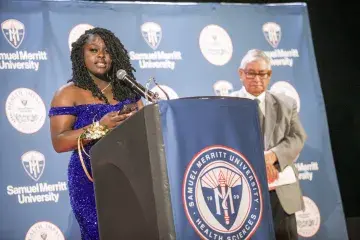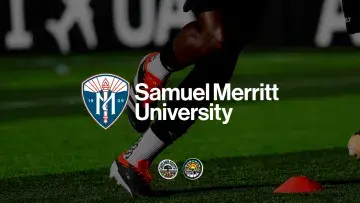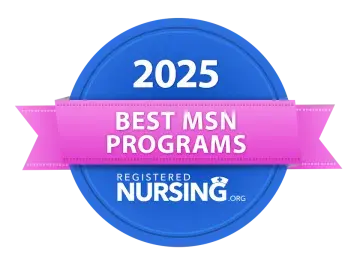SMU Simulation Program Only One in Bay Area to Win Full Accreditation
The Health Sciences Simulation Center at Samuel Merritt University (SMU) has become the first in the Bay Area to receive accreditation from a prestigious international organization.
The Society for Simulation in Healthcare (SSH) granted accreditation to the SMU center in the areas of teaching/education and research through 2022.
SMU is now only the third simulation center in California and the only one in the Bay Area to receive the designation of full accreditation from SSH, which has members in 57 countries.
“We are extremely proud that our simulation program was recognized for its high standards in a very competitive field of eligible institutions around the world,” said SMU Academic Vice President and Provost Scot Foster.
Winning full accreditation status followed two years of preparation and a rigorous assessment. During its onsite visit, the chair of the SSH review team called the SMU Simulation Center “a pearl of a program.”
SSH was established in 2004 to advance the science of simulation in education, testing, and research to improve performance and reduce errors in patient care. It is the largest accrediting body in the field of healthcare simulation.
In announcing its decision, the SSH Board of Review highlighted the following strengths of SMU’s Health Sciences Simulation Center:
- Strong reputation of the center’s faculty and staff among the SMU faculty and administration.
- Well-trained, competent, collegial faculty and staff.
- Strong support from both the University and Sutter Health Network.
“Achieving this recognition validates the center’s quality and enhances its credibility,” said SMU Assistant Academic Vice President Celeste Villanueva, who was the driving force behind the creation of the center 10 years ago. “We’re inspired to continue the work we do.”
Under Villanueva’s guidance, the University’s simulation program has grown significantly and now has facilities on all three of its campuses – Oakland, Sacramento and San Mateo. Nearly every student who graduates from SMU now experiences simulation-based education, which serves as a bridge between classroom learning and real-life clinical experience.
SMU’s Simulation Center, equipped with the most advanced equipment, provides clinical skills training through interaction with computerized manikins that realistically display breathing, eye movements, pulse sounds and other human functions. Students from all of SMU’s programs say that by allowing them to make mistakes without doing harm to patients, simulation education allows them to learn critical skills and how to work on a team.
“I think simulation-based learning is an extremely effective way to teach future healthcare professionals on how to provide safe patient care,” said Villanueva. “It’s also a perfect way to teach students how to make critical decisions and develop clinical reasoning skills.”


